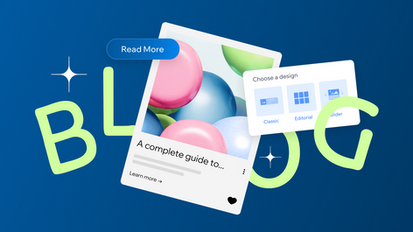A Beginner’s Guide to Best Website Host for Small Business
How to Master Best Website Host for Small Business
Best Website Host for Small Business
In today’s digital age, having a website is crucial for any business or individual looking to increase their online presence. However, not everyone has the time or technical expertise to design and build a website from scratch. This is where AI website builders come in handy, providing users with a quick and easy way to create a professional-looking website without the need for coding knowledge.

Best Website Host for Small Business
Best Website Host for Small Business
Web development can be broadly categorized into two main areas: front-end development and back-end development. Front-end development focuses on the visual aspects of a website, such as layout, design, and user interface. This involves using languages such as HTML, CSS, and JavaScript to create engaging and interactive user experiences. Back-end development, on the other hand, involves working with databases, servers, and application logic to ensure that a website functions properly. This often involves using languages such as PHP, Python, and Ruby.
One of the most important aspects of web development is responsive design. With the increasing use of mobile devices to access the internet, it is essential for websites to be optimized for all screen sizes. Responsive design ensures that a website looks and functions correctly on desktops, laptops, tablets, and smartphones. This involves using techniques such as fluid grids, flexible images, and media queries to create a seamless user experience across all devices.
In addition to responsive design, web developers also need to consider web accessibility when building websites. Web accessibility refers to the practice of making websites usable for people with disabilities, such as those who are visually impaired or have motor impairments. This involves using semantic HTML, providing alternative text for images, and ensuring that websites can be navigated using a keyboard. By making websites accessible to all users, web developers can ensure that everyone can access and use their websites.
When it comes to front-end development, one of the most popular frameworks is Bootstrap. Bootstrap is a front-end framework that allows developers to create responsive and mobile-friendly websites quickly and easily. It provides a set of pre-built components, such as buttons, forms, and navigation bars, that can be easily customized to fit the design of a website. Bootstrap also comes with a grid system that makes it easy to create responsive layouts that adapt to different screen sizes.
Another essential tool for front-end development is JavaScript, which is a programming language that allows developers to add interactivity and functionality to websites. JavaScript can be used to create animations, validate forms, and interact with APIs to fetch data dynamically. One of the most popular JavaScript libraries is jQuery, which simplifies common tasks such as DOM manipulation and event handling. More recently, frameworks like React and Angular have gained popularity for building dynamic and interactive web applications.
On the back-end side, one of the most widely used technologies is the LAMP stack, which stands for Linux, Apache, MySQL, and PHP. The LAMP stack is a popular open-source software stack that is often used to build dynamic websites and web applications. Linux is the operating system, Apache is the web server, MySQL is the database management system, and PHP is the server-side scripting language. Together, these technologies allow developers to create powerful and scalable web applications that can handle high traffic loads.
In recent years, there has been a shift towards using modern web development tools and technologies, such as Node.js and MongoDB. Node.js is a runtime environment that allows developers to write server-side code using JavaScript, making it easier to build real-time web applications. MongoDB is a NoSQL database that is designed for scalability and flexibility, making it ideal for handling large amounts of data in web applications. By using these modern technologies, web developers can create fast, efficient, and secure web applications that meet the demands of today’s users.
1. WordPress:
WordPress is one of the most popular website building platforms in the world, powering over 30% of all websites on the internet. It’s known for its flexibility and ease of use, making it a great choice for both beginners and experienced developers. With thousands of themes and plugins available, you can customize your site to fit your needs perfectly. WordPress also offers a user-friendly interface that makes it easy to create and manage content.
2. Wix:
Wix is another popular website building platform that offers a drag-and-drop editor, making it easy for anyone to create a professional-looking site. With hundreds of templates to choose from, you can quickly design a site that fits your brand aesthetic. Wix also offers a variety of features, such as e-commerce tools, marketing integrations, and analytics, making it a comprehensive solution for building your online presence.
3. Squarespace:
Squarespace is a website building platform known for its stunning design templates and powerful features. Whether you’re looking to create a portfolio, blog, or e-commerce store, Squarespace has you covered. The platform offers a range of customization options, such as fonts, colors, and layouts, allowing you to create a unique site that reflects your brand. Squarespace also offers built-in SEO tools and analytics, making it easy to optimize your site for search engines.
4. Shopify:
If you’re looking to build an online store, Shopify is the go-to platform for e-commerce websites. With easy-to-use tools for managing products, inventory, and orders, Shopify makes it simple to create a successful online store. The platform also offers a variety of themes and customization options, allowing you to create a unique shopping experience for your customers. Additionally, Shopify offers integrations with popular payment gateways and shipping providers, making it a comprehensive solution for selling products online.
5. Weebly:
Weebly is a user-friendly website building platform that offers a drag-and-drop editor and a variety of pre-designed layout options. Whether you’re looking to create a blog, portfolio, or online store, Weebly has templates and features to support your needs. The platform also offers SEO tools, analytics, and marketing integrations, making it a great choice for building a successful online presence.

Best Website Host for Small Business Best Practices
Best Website Host for Small Business
In conclusion, free site builders offer artists a convenient and affordable way to create a professional online presence. Whether you choose WordPress, Wix, Squarespace, or any other free site builder, these platforms provide the tools and resources you need to create a stunning website that showcases your artwork and helps you connect with new audiences. By taking advantage of these free site builders, artists can ensure that their work is seen and appreciated by a wider audience, helping them to grow their careers and reach new heights of success.

